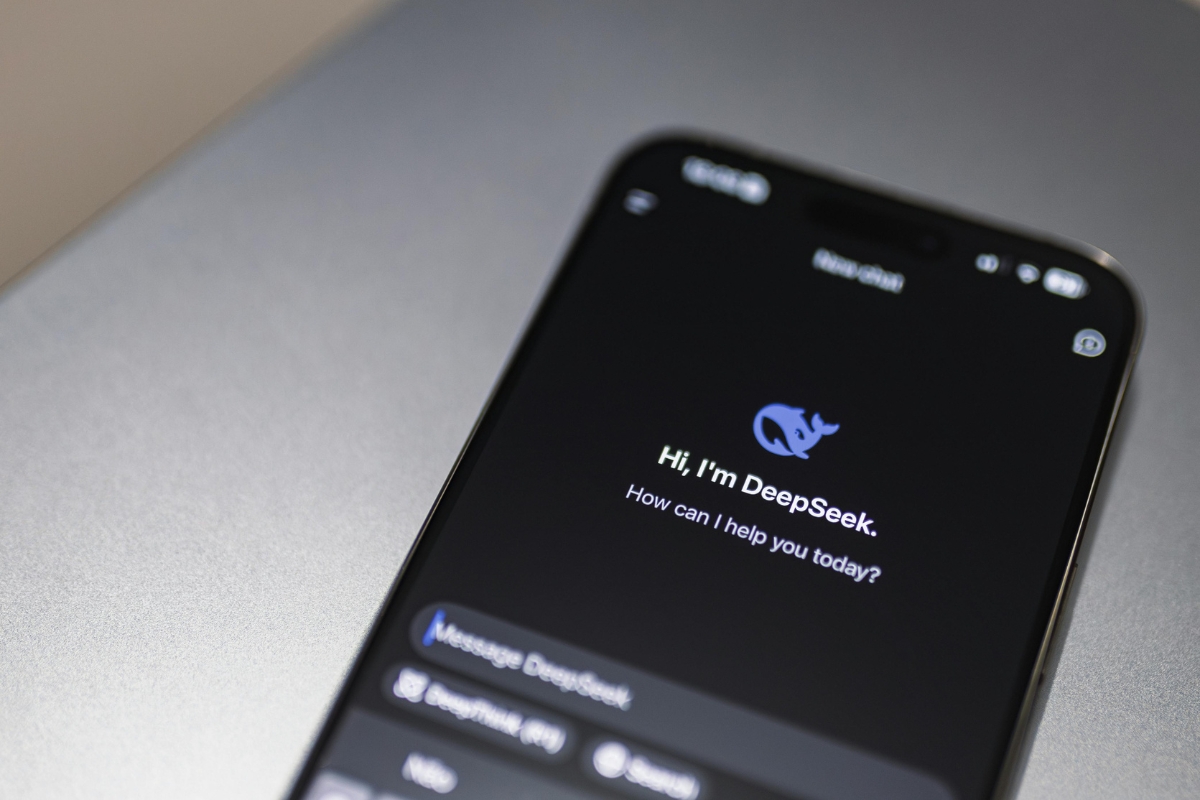Modern marketing is undergoing a profound transformation, thanks to the rapid rise of artificial intelligence (AI) and chatbots. These technologies are not just tools—they’re reshaping how brands connect with consumers by delivering faster, more personalized, and more efficient interactions. From automated customer service to predictive analytics and real-time engagement, AI-powered solutions are enabling businesses to scale their marketing efforts while improving customer satisfaction. In this article, we’ll explore how AI and chatbots are redefining the marketing landscape and what your business can do to stay ahead of the curve in this tech-driven era.
Modern Marketing Is Getting Smarter: Here’s How AI Is Leading
What Is Modern Marketing and Why Is AI Essential Today?

Modern marketing has evolved into a broad, integrated strategy that blends traditional methods with digital tools to reach customers more effectively. It no longer relies on print ads or simple radio spots. Instead, today’s marketing focuses on personalized customer engagement through platforms like websites, social media, and search engines. Tools like automation, SEO, web design, and paid ads now work together to create a seamless customer journey.
At the core of this shift is data—how it’s collected, analyzed, and applied. Businesses use customer behavior, demographics, and online activity to craft strategies that meet users where they are. And as customer expectations have changed, so have the tools marketers use. One of the most powerful tools today is artificial intelligence, which helps businesses analyze trends, optimize their spending, and tailor their content in real time.
How Has Marketing Evolved With Digital Technologies?
Over the last 20 years, marketing has become more precise. In the past, companies would cast a wide net with mass marketing tactics. Today, digital tools allow them to target specific audiences with a much higher level of accuracy. This includes local SEO for businesses trying to reach nearby customers, technical SEO for improving site performance, and content marketing for building trust and authority.
Social media, email campaigns, and search engines have become key channels. These platforms offer detailed performance tracking and allow marketers to tweak strategies in real time. Features like Google Search Console and Google Business Profile help businesses understand how customers find them, while services like website audits and maintenance ensure their sites continue to perform at a high level.
What Role Does Artificial Intelligence Play in Modern Marketing?
Artificial intelligence plays a major role in how modern marketing functions. It helps companies save time, manage large amounts of data, and make better decisions. For instance, AI can group customers by behavior, allowing for more focused advertising. It can also predict what customers might need next, helping businesses adjust their offers accordingly.
In content creation, AI tools assist with writing and optimizing blog posts, product descriptions, and email campaigns. When integrated with SEO efforts, AI can suggest keywords, analyze competitors, and highlight content gaps. This leads to better visibility online and improved engagement. On the technical side, AI supports automation tools that help businesses manage reputation, improve local search rankings, and maintain consistent messaging across platforms.
How Do Chatbots Fit Into the Modern Marketing Landscape?
Chatbots are another way AI is changing marketing. These tools interact with website visitors or social media users in real time, answering questions, guiding people to information, and helping schedule services. For small businesses, chatbots reduce the need for full-time customer service staff while still offering fast responses. They can also qualify leads by gathering basic information and directing serious inquiries to the appropriate contact.
With natural language processing, chatbots are now able to hold realistic conversations. This makes it easier for users to get help without feeling like they’re speaking to a machine. Chatbots can be especially useful in industries like healthcare, home services, and e-commerce, where customers often have simple questions about availability, pricing, or how to get started.
How Does AI-Driven Content Creation Enhance Marketing Efficiency?

AI-powered content creation is changing how marketing teams produce and manage digital content. Instead of spending hours writing, editing, or brainstorming ideas, marketers can now use AI tools to automate time-consuming tasks. This frees up creative and strategic bandwidth, allowing teams to focus on long-term planning and campaign performance.
By integrating tools for content writing, website management, and analytics, businesses can keep pace with the growing demand for high-quality, consistent messaging across platforms. AI helps generate content faster, reduce repetitive work, and align messaging across websites, emails, and social media. It also ensures that content is more targeted, timely, and relevant to specific audiences. In combination with SEO best practices and thoughtful user experience design, AI-supported marketing helps deliver consistent results without draining resources.
What Types of Marketing Content Can AI Generate?
AI is capable of producing a wide range of marketing assets. These include blog posts, social media captions, product descriptions, email campaigns, and even scripts for videos or podcasts. Using historical data and real-time input, AI platforms can generate drafts or polish existing content for different formats and platforms. Many tools now go beyond just written content. AI can also assist with visual asset generation, offering layout suggestions for graphics or resizing images for specific platforms. These capabilities are especially useful for teams managing multiple content streams at once.
In addition, AI can support website updates, improve internal link structures, and help with tasks like generating page titles, meta descriptions, and SEO tags. For companies using platforms like WordPress, AI integrations can assist with scheduling content, running audits, and identifying broken links or underperforming pages. This helps maintain content quality and ensures the site remains optimized for both users and search engines.
How Does AI Improve Content Personalization and Engagement?
One of the main benefits of using AI in marketing is the ability to personalize content. Instead of sending the same message to everyone, AI uses data from past behavior, location, or device preferences to tailor content to each user. This is especially useful for email campaigns and product recommendations. For instance, AI can analyze which products someone viewed, what emails they clicked on, or when they typically shop. Based on that information, the system can send targeted offers at the right time, with the right message.
In addition to email, personalization can improve engagement on websites and social media. By identifying top-performing content and suggesting similar themes or tones, AI helps brands speak more directly to their audience. The result is stronger engagement, more time spent on site, and a higher chance of conversion. These personalized experiences build trust and lead to better results. When customers feel like a brand understands their needs, they are more likely to return and make a purchase.
What Are the Measurable ROI Benefits of AI Content Creation?
AI content tools bring clear operational and financial benefits. One of the biggest advantages is speed. Teams can cut the time spent on initial drafts, research, or formatting by half, sometimes more. This allows marketers to focus their time where it matters most—on strategy, testing, and improving performance. AI also contributes to better accuracy in targeting and timing. By using tools that track behavior patterns, marketers can deliver content when it is most likely to be seen and engaged with. This leads to higher open rates, better click-through rates, and improved conversion metrics.
From an SEO perspective, AI helps improve technical elements like keyword density, link building, and internal navigation. This can improve rankings, drive more traffic, and enhance visibility in search engine results. Businesses using AI for content production often report a noticeable increase in efficiency. Some see up to a 25 percent boost in lead conversions, while others reduce content production costs by up to 50 percent. For small businesses, these gains can be the difference between staying on budget and needing to scale back campaigns.
In What Ways Do Chatbots Revolutionize Customer Interaction and Lead Generation?

Chatbots have significantly changed the way businesses interact with their customers by delivering fast, consistent, and personalized responses. Available 24/7, they help answer questions at any time of day, ensuring that customers don’t have to wait for human support. This accessibility builds stronger customer relationships and keeps users engaged during critical decision-making moments. As a result, companies often see higher conversion rates and better overall retention.
More than just a support tool, chatbots can guide users through a sales journey, assist with product recommendations, and collect essential information—all in a matter of seconds. Their presence helps reduce bounce rates by keeping users active on a site longer, increasing the likelihood of a completed purchase or inquiry. When integrated with a well-designed website, chatbots become part of a broader customer engagement strategy that supports both lead generation and user satisfaction.
How Do Chatbots Improve Customer Support and Response Times?
One of the most noticeable benefits of chatbots is the reduction in wait time. Automated responses to common questions like order status, product details, or account information allow customers to get help quickly. For businesses, this means fewer support tickets and more efficient use of human resources.
Chatbots can also direct users to the right team or escalate issues when necessary. This tiered approach to support improves overall service quality and helps maintain consistency in brand communication. For companies managing a large customer base, this level of automation can be a game changer, reducing pressure on live agents while still maintaining a high standard of care.
Their contribution to response time and accuracy also plays a role in shaping how a brand is perceived. Quick and helpful service enhances a company’s reputation and leaves a lasting impression. It also encourages customers to return, which increases loyalty and long-term value.
What Chatbot Features Drive Effective Lead Generation?
Effective lead generation with chatbots comes down to their ability to engage users naturally while collecting meaningful information. Smart conversation flows help identify a visitor’s intent and can qualify leads by asking relevant questions or offering personalized content. This creates a smooth experience that feels more like a guided conversation than a typical sales pitch.
Many chatbots can also sync with CRM tools, making it easy to track interactions, follow up with leads, and adjust future outreach based on user behavior. For example, if a visitor asks about pricing or service availability, the chatbot can record this and alert the sales team for future follow-up. By collecting contact information during casual conversation—such as an email address or phone number—chatbots make it easier to build a list of engaged prospects. When paired with broader digital strategies, they become a consistent and reliable channel for capturing new leads.
How Can Chatbots Personalize Customer Journeys?
Personalization is one of the key ways chatbots add value. By using customer history and real-time data, they can offer suggestions that feel relevant and timely. Whether it’s recommending products, answering questions based on past purchases, or directing someone to a preferred resource, the chatbot can adjust its behavior based on who it’s talking to.
This kind of personalization helps visitors feel understood and valued, increasing the likelihood that they’ll return. Over time, it also builds a richer customer profile that can be used across marketing efforts, from email campaigns to website content adjustments. When used well, chatbots don’t just help customers—they help businesses operate smarter. They streamline support, enhance engagement, collect useful data, and create more meaningful interactions. As expectations for speed and personalization continue to rise, chatbots will remain a crucial part of modern digital strategies.
How Can MarketingAutomation Powered by AI Optimize Campaign Performance?

AI-powered marketing automation is changing how marketing teams plan and run campaigns. By using data to guide decisions and automating routine tasks, businesses can deliver more targeted, effective messages to the right audiences with less manual effort. Rather than relying on guesswork, marketers can now use AI to analyze behavior patterns, monitor engagement, and adjust campaigns in real time based on performance.
Automation takes over time-consuming jobs like email scheduling, lead scoring, content distribution, and campaign tracking. This frees up teams to focus on creative development, brand storytelling, and strategy. It also helps reduce errors that might otherwise occur during manual input. The end result is a smoother workflow and more consistent execution across channels.
Combining automation with analytics also allows for more accurate targeting. AI can identify trends, segment audiences, and deliver personalized content at scale. It helps businesses stay competitive by enabling fast responses to shifts in user behavior and market conditions, while maintaining high-quality output.
What Marketing Tasks Can Be Automated With AI?
There are many areas where AI can streamline marketing efforts. Email campaigns are a prime example. AI tools can determine the best time to send messages, tailor subject lines based on user history, and segment lists for higher engagement. This leads to better open and click-through rates. AI also plays a role in content creation. While it may not replace human creativity, it can assist in generating blog outlines, writing basic copy, or suggesting headlines. For social media, AI tools can help plan, schedule, and even respond to comments or messages, making management more efficient.
In paid advertising, AI systems adjust bidding strategies based on performance data, ensuring that ad budgets are spent wisely. On the customer support side, chatbots use natural language processing to answer common questions instantly and hand off more complex issues to human agents when needed. In addition, AI improves lead qualification by analyzing data and assigning scores to prospects based on likelihood to convert. This allows sales and marketing teams to prioritize outreach and close deals more efficiently.
How Does Predictive Analytics Enhance Campaign Decision-Making?
Predictive analytics is a powerful tool in marketing because it shifts teams from being reactive to proactive. By examining historical data, AI can forecast how different segments are likely to behave. For example, if a group of users regularly engages with a certain type of content or offer, predictive models can help determine the best time and channel to reach them again.
This approach reduces the need for trial and error. Instead, marketers can make informed choices about where to invest their time and budget. Predictive analytics also highlights potential problem areas—such as underperforming segments or campaign elements—so they can be adjusted before issues escalate. Using predictive insights also improves personalization. Campaigns can be tailored more effectively when there’s a clear understanding of what an audience is likely to respond to. It also enables businesses to optimize offers and messages at the individual level, increasing relevance and engagement.
What Scalability Advantages Does AI MarketingAutomation Offer?
One of the most important benefits of AI in marketing is how easily it scales. As a business grows, so does the complexity of its marketing needs. Without automation, it becomes difficult to manage larger customer databases, more frequent campaigns, and multiple communication channels. AI helps companies keep pace without having to expand their teams at the same rate.
With automation, repetitive tasks can be handled more quickly, and customer interactions remain consistent regardless of scale. This efficiency allows small and midsize businesses to compete with larger organizations by delivering a professional, responsive experience at every stage of the customer journey. Because AI systems continue to learn and improve over time, their recommendations and insights become more accurate. This ongoing optimization means that campaigns remain effective even as market conditions or audience behavior change.
What Are the Key Benefits of Integrating AI and Chatbots in Marketing Strategies?

Bringing AI and chatbots into marketing strategies gives businesses the ability to work smarter and reach customers more effectively. These tools improve everything from daily operations to user engagement by streamlining tasks and offering better ways to understand and interact with audiences. With AI, brands can deliver more personalized experiences, adjust campaigns based on real-time data, and manage communication across platforms without the need for constant human oversight. The result is a more efficient marketing process that reduces costs while improving customer satisfaction. Businesses can reach larger audiences with consistent messaging and fewer resources, making AI and chatbots valuable additions to any modern marketing approach.
How Does AI Increase Marketing Efficiency and Reduce Manual Work?
AI makes it easier to manage and scale marketing campaigns by taking over repetitive tasks. Functions like audience segmentation, data analysis, scheduling, and performance tracking can be handled automatically. This not only reduces the workload for marketing teams but also minimizes errors and speeds up the execution of campaigns.
With AI, businesses can automate email sends based on customer behavior, identify which content performs best, and even adjust advertising bids in real time. These automated processes improve consistency across marketing channels and allow teams to spend more time developing creative strategies rather than getting stuck in administrative work. By reducing the need for manual input, AI allows businesses to operate more efficiently and get more done with fewer resources. It also improves campaign accuracy by basing decisions on data rather than guesswork.
In What Ways Does AI Improve Customer Experience and Satisfaction?
AI enhances the customer experience by making interactions faster, more relevant, and more consistent. For example, chatbots can answer common questions immediately, guide users through product selections, or help troubleshoot basic issues without needing a human agent. This kind of support is available around the clock and helps reduce wait times, improving overall satisfaction.
Beyond chatbots, AI also powers personalization efforts. It can track customer behavior and preferences to suggest products, deliver tailored messages, or customize content based on past interactions. These kinds of personalized experiences help customers feel seen and understood, which strengthens brand loyalty and encourages repeat business. AI also ensures that each customer interaction reflects the brand’s tone and intent, no matter how large the audience grows. This level of consistency is difficult to achieve manually but becomes manageable with the right technology.
How Do AI Insights Lead to Better Marketing ROI?
One of the biggest advantages of AI in marketing is the ability to turn data into insights. AI can analyze large sets of customer information, campaign performance metrics, and engagement patterns to reveal what’s working and what needs improvement. These insights help businesses make smarter decisions, like reallocating budget to high-performing channels or fine-tuning messaging for better results.
By understanding which tactics drive conversions and which ones fall short, marketers can make informed adjustments that improve return on investment. AI also enables better forecasting, helping teams anticipate trends or shifts in audience behavior before they happen. Another benefit is AI’s ability to scale without significant increases in cost. As campaigns grow, AI systems continue to optimize performance without requiring more manual oversight. This scalability is especially important for smaller teams that need to stay competitive in fast-moving markets.
How Are Leading Companies Using AI and Chatbots in Modern Marketing?

Many forward-thinking companies are using AI and chatbots to reshape their marketing strategies. These tools have become central to how businesses communicate with customers, improve efficiency, and personalize user experiences. Instead of relying on manual processes, companies now automate responses, analyze customer behavior in real time, and predict user needs before they arise.
AI and chatbots are used at every stage of the customer journey, from the first interaction on a website to long-term engagement. Real-time messaging, lead qualification, and customer service can all be managed through chatbots, which frees up staff to focus on higher-level strategy. Predictive analytics also plays a growing role in marketing, helping brands adjust campaigns quickly based on current performance data.
These technologies are no longer limited to tech giants. Small and mid-sized businesses are also finding value in AI by automating routine tasks and using data-driven tools to better understand their audiences. The common thread among successful adopters is a commitment to continuous improvement and strategic testing.
What Strategies Do Top SaaS Providers Use for AI Marketing?
Software-as-a-service companies are particularly aggressive in their use of AI and automation. They rely heavily on machine learning to understand customer behavior and fine-tune everything from ad placement to pricing. These companies build dynamic customer segments based on data trends, using that information to personalize messages, refine user journeys, and adjust marketing spend in real time.
Chatbots are often integrated directly into onboarding flows and product support channels, allowing users to get immediate help without submitting support tickets. AI is also used to optimize content delivery. From welcome emails to upsell messages, content is tailored based on each user’s behavior and preferences. These companies also analyze performance across marketing channels and tweak campaigns accordingly to stay competitive.
How Do Platforms Like HubSpot and Drift Leverage Chatbots?
HubSpot and Drift are among the platforms that have brought chatbots into mainstream business use. They use bots to streamline lead capture, answer basic questions, and direct users to the right resources. Rather than replacing human interaction entirely, these tools serve as the first point of contact, filtering requests and speeding up response times.
Chatbots on these platforms are often tied into CRM systems, which means every conversation contributes to a fuller customer profile. With this setup, businesses can automatically score leads, personalize follow-up messages, and pass on only qualified contacts to sales teams. The outcome is a faster, more efficient marketing funnel and a better experience for potential customers.
What Lessons Can Businesses Learn From AI Marketing Leaders?
There’s a lot that smaller companies can learn from how established brands use AI. One key takeaway is that automation works best when combined with human strategy. Businesses should use AI to handle repetitive tasks, analyze performance data, and deliver personalized messaging—but it should all be in service of a larger marketing plan.
Another lesson is the importance of acting on real-time data. Instead of launching a campaign and waiting for results weeks later, AI allows teams to adjust content, budget, and targeting immediately. This flexibility leads to better performance and a higher return on investment. Finally, companies that succeed with AI tend to view it not as a one-time fix, but as an ongoing part of their marketing infrastructure. They regularly test new tools, update their strategies based on user behavior, and stay open to changes in technology. Businesses that adopt this mindset are better positioned to meet customer expectations, reduce inefficiencies, and grow sustainably.
What Are the Future Trends of AI and Chatbots in Modern Marketing?

The role of AI and chatbots in marketing continues to grow as technology advances and consumer expectations shift. Businesses are increasingly using automation to create more tailored and responsive experiences, with tools that adapt to customer behavior in real time. Looking ahead, this technology is expected to play an even larger role in how companies attract, engage, and retain customers.
Rather than replacing human interaction, AI is beginning to complement it in ways that improve efficiency and effectiveness. From answering basic questions to supporting long-term customer journeys, these tools are helping businesses communicate faster and with more relevance. As companies gather more data and improve how they use it, the next wave of AI tools will provide even greater personalization. These advancements will make it easier to connect with customers at just the right moment, with messaging that reflects their needs, preferences, and browsing habits.
How Will AI Personalization Evolve in Marketing?
AI personalization is moving toward deeper and more dynamic forms of engagement. Instead of relying on static audience segments, marketing systems will soon adjust messaging automatically based on a person’s behavior, history, and even mood. For example, a customer who browses specific product categories repeatedly may be shown recommendations tailored to their past interactions, time of day, or preferred device.
As algorithms become more sophisticated, businesses will be able to predict not only what a customer wants, but when they are most likely to act on it. The data powering these insights will come from a range of sources, including website analytics, search behavior, and interaction history. When applied correctly, this information will support campaigns that adapt in real time, creating a stronger connection between brands and their audiences.
To stay competitive, companies will need to invest in infrastructure that supports this level of responsiveness. This includes reliable website performance, consistent content updates, and the ability to collect and analyze user data across platforms. When done well, these efforts result in higher engagement, stronger conversion rates, and more meaningful relationships with customers.
What Emerging Chatbot Technologies Will Impact Marketing?
Chatbots are also evolving. New advancements in natural language processing and sentiment analysis are enabling bots to understand user intent with more accuracy and respond in a tone that matches the context of the conversation. Rather than offering pre-programmed replies, next-generation bots will engage in more fluid, human-like interactions.
Businesses will also see growth in chatbots that operate across multiple channels—web, mobile apps, messaging platforms—so users can engage without disruption regardless of where they begin. These bots may soon integrate with other immersive technologies, such as augmented or virtual reality, offering interactive support that feels more intuitive than a typical help center or FAQ page. To fully benefit from these changes, businesses should ensure their digital platforms are built to support integration. This includes clean site architecture, regular system updates, and attention to how bots fit into the overall customer journey.
How Can Businesses Prepare for AI-Driven Marketing Changes?
Preparing for future shifts in AI-driven marketing starts with a willingness to experiment and adapt. Businesses should focus on making their digital presence as flexible as possible, which means building systems that can scale with new tools, collecting useful data, and committing to regular performance reviews.
Training teams to work effectively with AI is also important. As automation takes on more tasks, marketers will need to shift their focus toward strategy, storytelling, and analysis. Companies that combine human insight with AI precision will be best positioned to deliver campaigns that are both efficient and impactful. Finally, businesses should prioritize security, especially as more customer interactions rely on data. Implementing strong data protection measures, being transparent about usage, and ensuring compliance with privacy regulations will be essential. Those who take these steps now will be ready to use AI not just as a tool, but as a long-term driver of growth and customer satisfaction.
Frequently Asked Questions
Q: What defines modern marketing in the digital era? A: Modern marketing combines digital platforms, data analysis, and automation to deliver campaigns that feel timely and relevant. It emphasizes personalized messaging, real-time interaction, and targeted outreach across multiple channels. With AI, marketers are able to adjust campaigns quickly based on user behavior and feedback. These strategies often rely on search visibility, user experience design, and consistent branding to keep audiences engaged.
Q: How does AI increase ROI in marketing campaigns? A: AI helps improve ROI by automating repetitive work, identifying which strategies are performing best, and allowing for more targeted messaging. It pulls insights from customer behavior, search data, and past campaign performance to guide smarter decisions. With this kind of automation, teams can spend less time on routine tasks and more time adjusting strategy where it matters. The result is stronger engagement, lower costs per lead, and better allocation of resources.
Q: What key functions do chatbots perform in customer support? A: Chatbots provide instant answers to common questions, help users navigate websites, and collect key information without human intervention. They can assist in booking appointments, qualifying leads, or directing customers to the right resources. When built with user experience in mind, chatbots can reduce wait times, improve satisfaction, and even gather data that helps refine future support and sales efforts.
Q: In what ways can ai-driven content creation improve efficiency? A: AI tools can help generate content quickly, whether it’s drafting product descriptions, social media posts, or blog outlines. They also assist in formatting, editing, and maintaining tone across platforms. This saves time for marketers who need to produce high volumes of content while maintaining quality. Automated design tools can also aid in creating graphics and layouts that stay consistent with brand standards.
Q: How are top companies incorporating AI and chatbots in their marketing strategies? A: Leading brands use AI to analyze customer data, predict behavior, and deliver content that feels personalized. Chatbots are often used to guide visitors through websites, answer questions, and qualify leads before passing them along to sales teams. These technologies make marketing efforts more scalable by handling tasks around the clock and enabling companies to respond more quickly and effectively to customer needs.
Q: What emerging trends in AI and chatbots should businesses watch for? A: As AI technology continues to advance, businesses should look out for more natural chatbot conversations, better sentiment analysis, and integration across different platforms. These features will make it easier for companies to maintain consistent communication with their audience, regardless of the channel. Chatbots are also starting to work alongside voice assistants and other technologies, creating more seamless interactions in both customer service and marketing.
Q: How can small service-based businesses leverage AI to improve their marketing? A: Small businesses can use AI tools to automate email campaigns, manage social media, and analyze website traffic. These tools help identify what content resonates with audiences and where improvements are needed. With the right setup, even businesses with limited resources can compete by delivering timely, personalized outreach and maintaining an active digital presence. AI allows them to do more with less while keeping their marketing efforts consistent and responsive.
Final Thoughts
AI and chatbots are revolutionizing the way brands connect with customers, delivering instant support, personalized recommendations, and data-driven insights that drive engagement and loyalty. By integrating these smart technologies into your marketing strategy, you’ll not only streamline operations but also create meaningful, 24/7 interactions that set your business apart. Ready to harness the power of AI and chatbots with our marketing automation services? Newman Web Solutions is here to guide you every step of the way. Call us at (404) 301-9189 or schedule your free 30-minute strategy session today, and let’s transform your marketing into a seamless, AI-driven experience.





